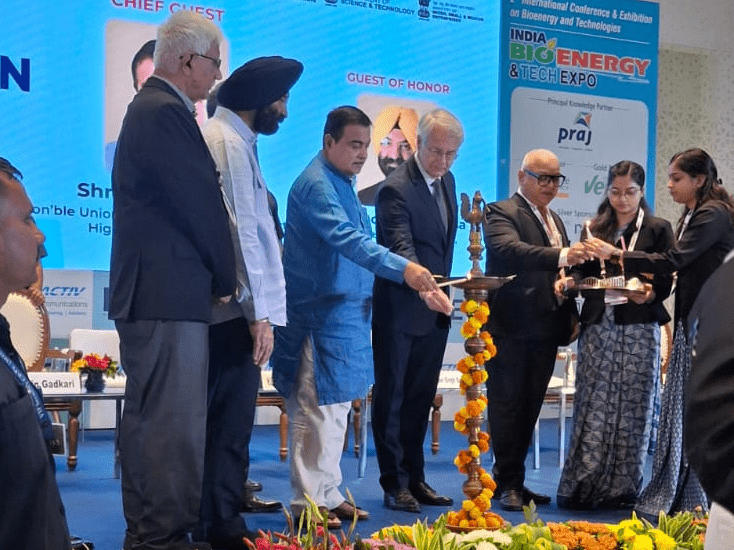In the panel discussion titled “International Perspective on BioEnergy: Enabling Global Energy Transition, some important views regarding the energy transition the world is witnessing were discussed.
The Finnish Ambassador to India. H.E Kimmo Lahdevirta said that Finland has set some future milestones. “Finland will be coal-free by 2029, carbon negative by 2050. It’s our key national strategy, and bioenergy is central to that. Also, we are scaling up on Bio Coal. These achievements are not solely about GDP. They reflect how societies thrive when sustainability is at the core of policy and innovation,” he said.
The Brazilian Ambassador, H.E. Keneth Felix, said that the country transitioned to ethanol due to a crisis. “There was an economic and security rationale that led to Brazil’s ethanol policy. And the success was based on continuity”.
Ravi Gupta, Chairman, IFGE Sugar & BioEnergy Forum and ED, Shree Renuka Sugars, said that India’s bioethanol story has been exemplary. He said that the sugar industry just needs a strong ecosystem, sustainable policy, and the environment to excel.
“At this point, our total ethanol production capacity is 1700 crores, but to produce E20, we need 1100 cr litrs. There is a surplus of 600 cr litres. I think the need of the hour is to think beyond E20 and introduce FFVs”, he added.
Tarun Kapoor, Advisor to the Prime Minister, said that the ethanol programme has been a success and we should now target CBG. “We want CBG to remain viable, even for the companies buying and selling it,” Kapoor said.
He added that fuel that is being mass consumed in the country should have blending with biofuel, “We are keen to do blending with diesel and LPG. We need to have the right products. Some R&D is being done as we speak. We don’t want to create problems for existing vehicle engines… once the right blend is developed, there will be a very, very large market,” he said.

















